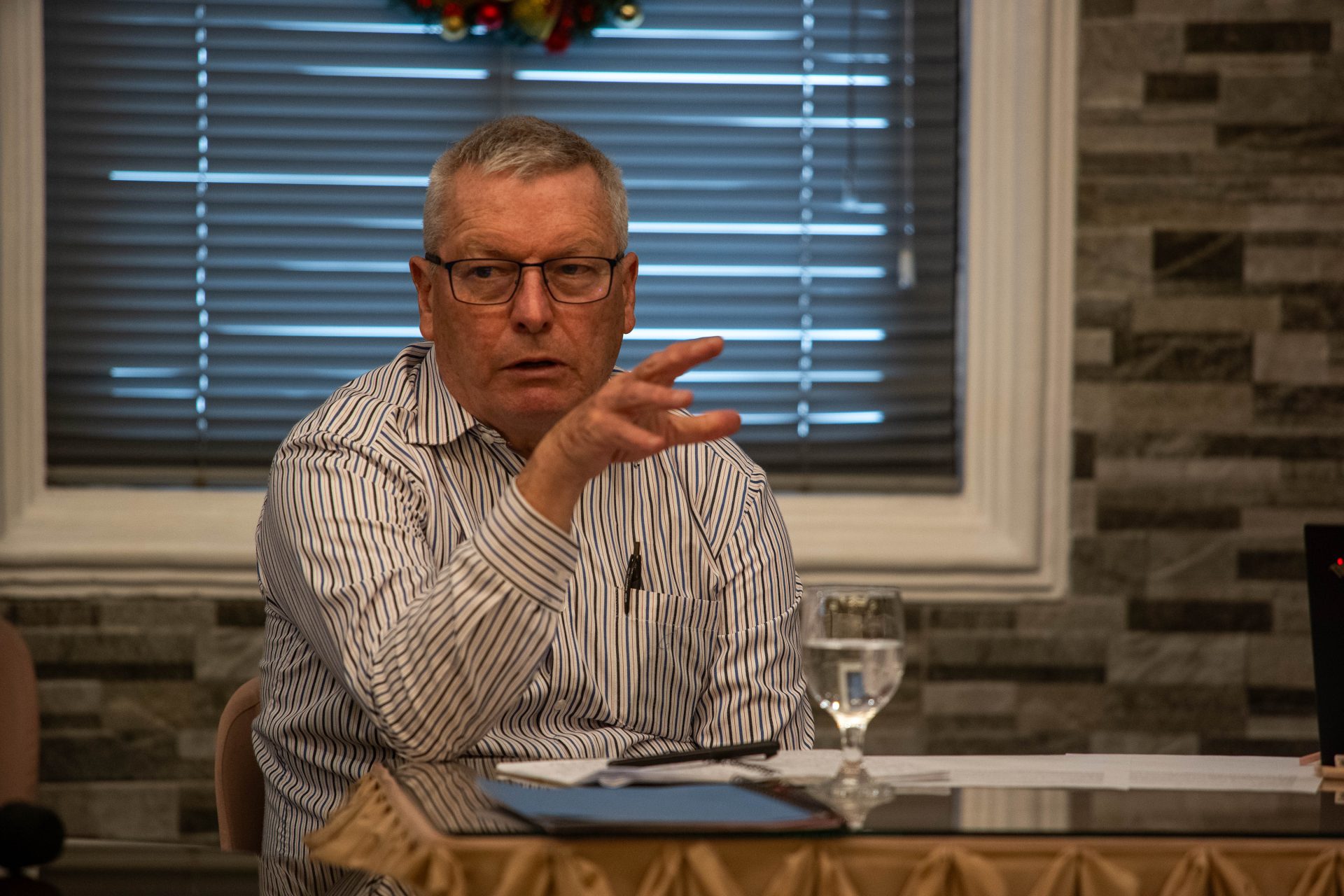The well-lit conference room, adorned with Christmas garlands, helped ease the anxiety of those who would tell their stories to Ian Fry, the United Nations Special Rapporteur on the promotion and protection of human rights in the context of climate change.
It was the UN Envoy’s fifth day in the Philippines for an official visit. The focus of the visit included discussions on loss and damage and the impact of climate change on human rights, climate change legislation, litigation, and intergenerational justice.
His agenda also covered the protection of environmental human rights defenders and gender responses to climate change.
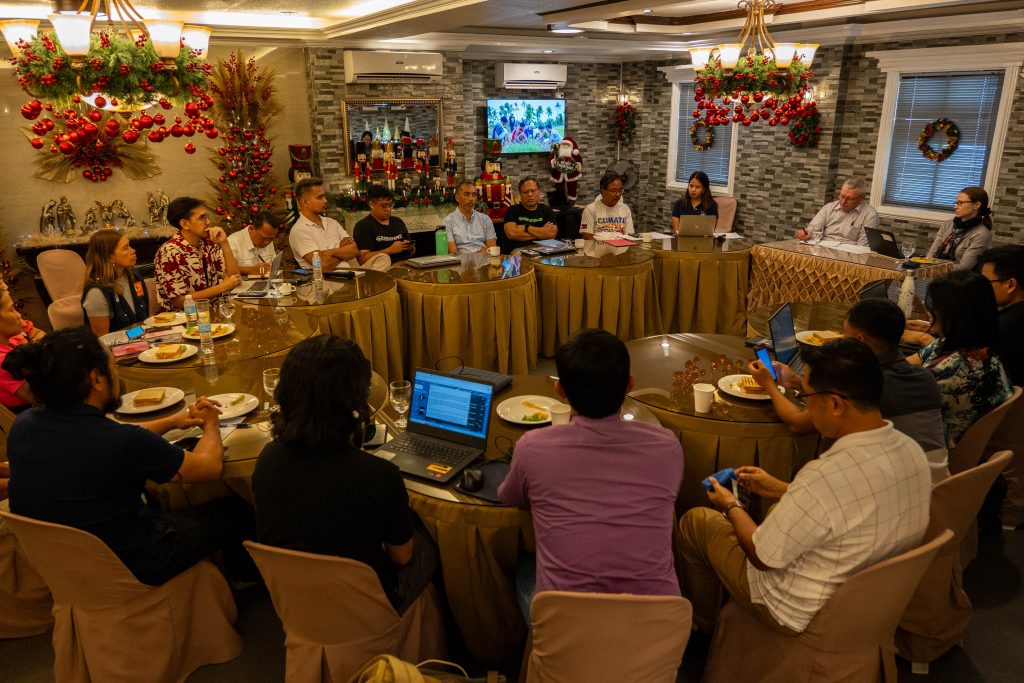
“We understand the anxieties and emotions because this dialogue coincides with the 10th anniversary of Super Typhoon Yolanda, but we request you to be brief and precise in telling your situations to Mr. Fry,” Enteng Bautista, spokesperson of the Philippine Universal Periodic Review (UPR) Watch, told representatives of various peoples’ and civil society organizations during the pre-dialogue briefing.
Over a dozen speakers from various organizations only had two hours to express their grievances and report on human rights and environmental concerns during a closed-door meeting with the UN Envoy in Tacloban City on November 10.
One of the first speakers was Jedidiah Magoncia, a resident of Tacloban City and member of Save Kankabatok Advocacy. He intended to deliver his message in both Waray and English languages.
But for the sake of time, Magoncia used English to debunk claims that “Cancabato Bay is dead” and that “a causeway project will not affect biodiversity and the livelihood of the people”.
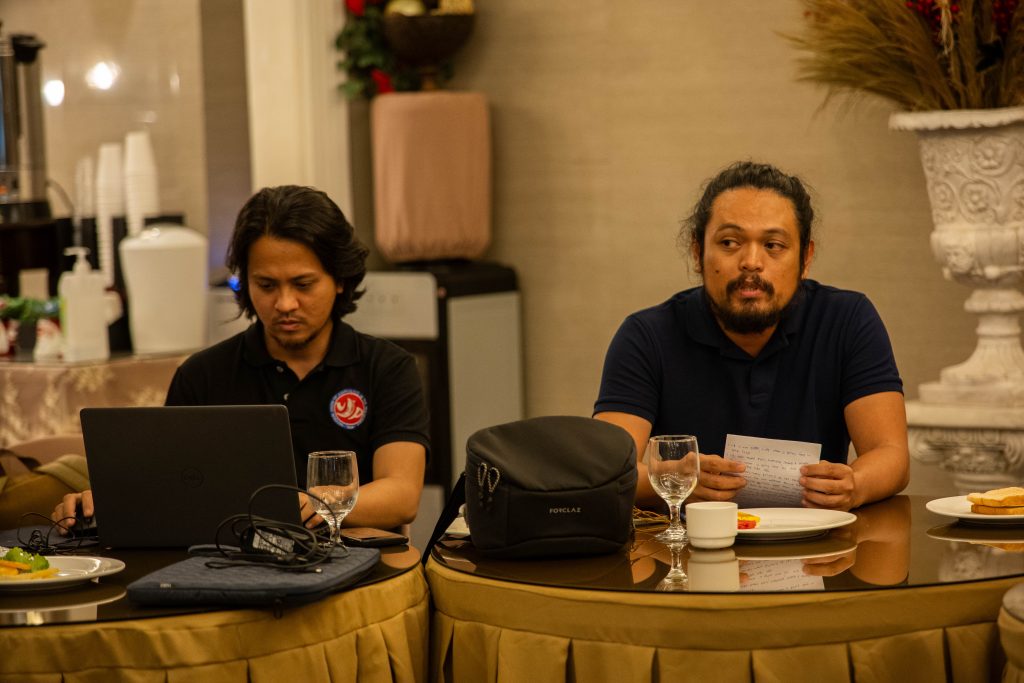
In its 2017-2025 Comprehensive Land Use Plan, the city government of Tacloban stated that a Cancabato New Central Business District would be established on “close to 400 hectares of a heavily silted, polluted, and dying biodiversity portion of Cancabato Bay”.
“The Cancabato Bay is rich in fish, shellfish, crabs, and the like. This is contrary to what the mayor of Tacloban is saying, who claims either that they do not exist or that they exist in very few numbers,” said Magoncia, who resides along the edge of the bay.
The Tacloban City government is executing a causeway project from Magsaysay Boulevard to the airport area in San Jose, which will traverse the Cancabato Bay.
This will effectively obstruct the waterway and signal the start of other reclamation projects aiming to transform the bay into a central business district.
The project has already led to the displacement of hundreds of urban poor and fisherfolk families from coastal communities, according to Philippine UPR Watch.
In addition to the community displacement and the loss of livelihood for fisherfolk in the area, the mangrove reforestation in Brgy. Paraiso is at risk of being wiped out, jeopardizing the efforts of locals who worked hard to rebuild it.
Magoncia said the causeway project “will kill the bay, will destroy the biodiversity, and will economically displace people” who are relying on the bay for their livelihood.
Naderev Saño, executive director of Greenpeace Southeast Asia, said the government must “stop creating conditions that will further exacerbate the impact” of climate change.
He said building social structures must be prioritized to help vulnerable communities and aid the full recovery of the survivors of Super Typhoon Yolanda.
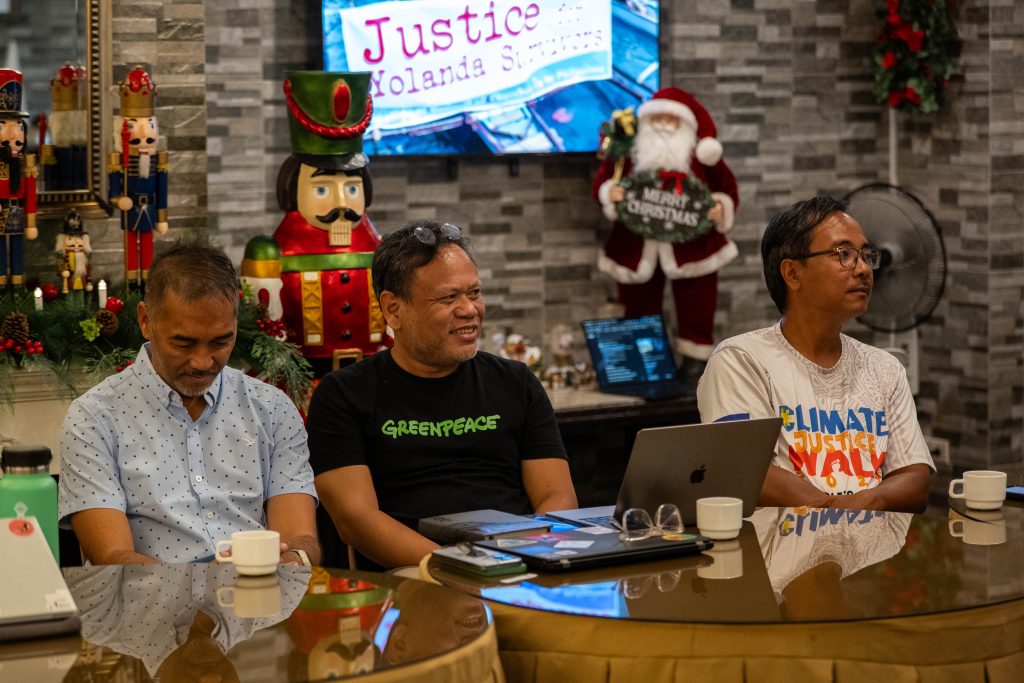
Yolanda (international name: Haiyan) was considered as the “deadliest case of extreme weather” which claimed more than 6,000 lives when it the country in 2013. Humanitarian and civil groups, however, said that the actual body count could be higher.
Norma Baylen, a Yolanda survivor, was teary-eyed when she started to recount the ordeal ten years ago and the succeeding typhoons that hit the region after Yolanda.
She mentioned that many disaster-stricken communities “struggle to get back on their feet due to the lack of a comprehensive program for social aid for the poor”.
According to Leyte Center for Development Inc., poor sectors in the Eastern Visayas region have “become poorer, with inflation at an all-time high” ten years after the deadly typhoon. “The affected population has never been able to fully recover because livelihood remains a major challenge,” said Minet Aguisanda-Jerusalem, executive director of the group.
She urged the government to “invest in natural resilience programs,” such as growing mangroves and upland forest trees, as a priority, and “focus on disaster risk reduction capacity building in poor and vulnerable communities”.
Bishop Jerby Salor, chairperson of Eastern Visayas Regional Ecumenical Council, expressed fear that “another mega-disaster like Yolanda is bound to happen” because the country is “still plagued with greenwashing, false climate solutions, and ecologically destructive projects under the current administration”.
The prelate said the increasing injustice faced by the poor, which is now compounded by the impact of climate change, must be addressed.
Bishop Salor condemned the environmental plunder in the region, which he claimed was carried out by both corporations and the government that victimizes the poor and the vulnerable.
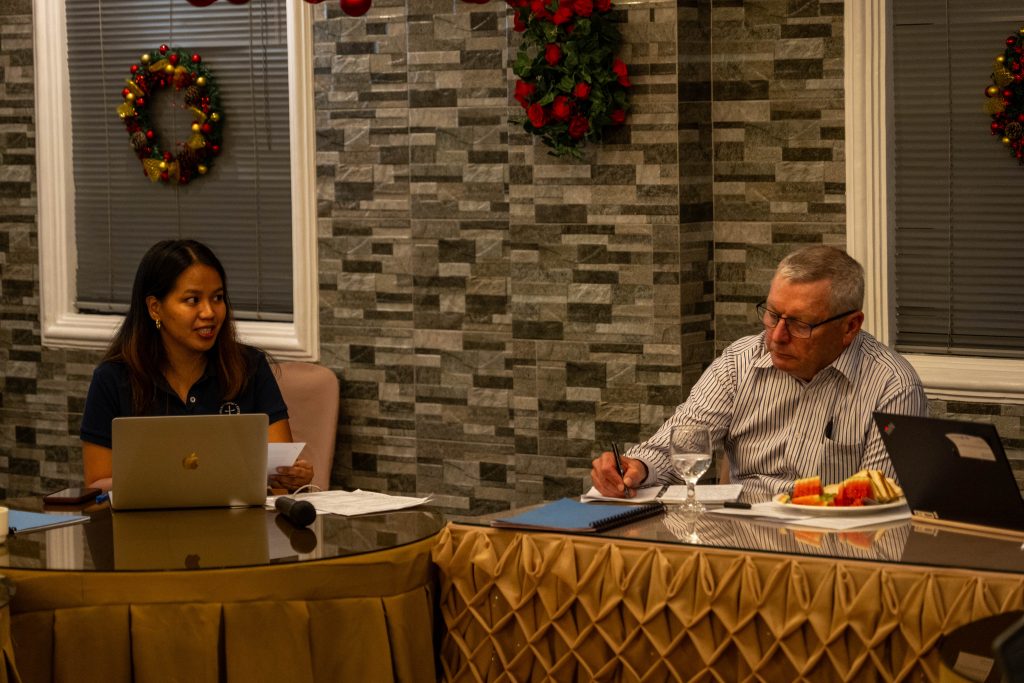
On human rights defenders
The UN envoy also listened to the speakers who presented the situation of the region under destructive extraction projects. He threw a few questions and after clarifying some of the information, he directed his attention to Patricia Mungcal of the National Council of Churches in the Philippines (NCCP).
Mungcal highlighted the experiences of Tag-alag Farmers and Fisherfolks Association in addressing food insecurity and livelihood losses in Marabut town, Samar province.
She revealed that NCCP “has uncovered a series of grave violations of International Humanitarian Law” committed by the Armed Forces in the Philippines (AFP) against the farmers and fisherfolks.
“These violations include cases of harassment, surveillance, red-tagging, attempted assassinations, and coercion,” she lamented. “
Mungcal said there have been reports of “hamletting, bombings, and drone surveillance” in their community, which “significantly heightened the vulnerability of these communities, undermining their fundamental right to organize”.
NCCP was one of the national civil society organizations that responded to the survivors’ needs in the aftermath of Haiyan from 2013 to 2016. Its intervention in the region extended until 2018 as part of our disaster risk reduction and climate change adaptation program.
Neil Eco from Altermidya Network, one of the three journalists allowed to attend the dialogue, brought the case of the jailed community journalist Frenchie Mae Cumpio to the attention of the Special Rapporteur. Cumpio, who has been in jail for three years, is a community journalist who reported on the plight of typhoon-hit communities in Eastern Visayas.
“Frenchie now faces three trumped-up charges that keep her behind bars… We have no doubt that elements of the state are behind prolonging Frenchie’s cases in court,” he said.
Both Eco and Mungcal urged the UN envoy to call on the Philippine government to “abolish laws and policies that enable human rights abuses on environmental defenders and community organizations”.
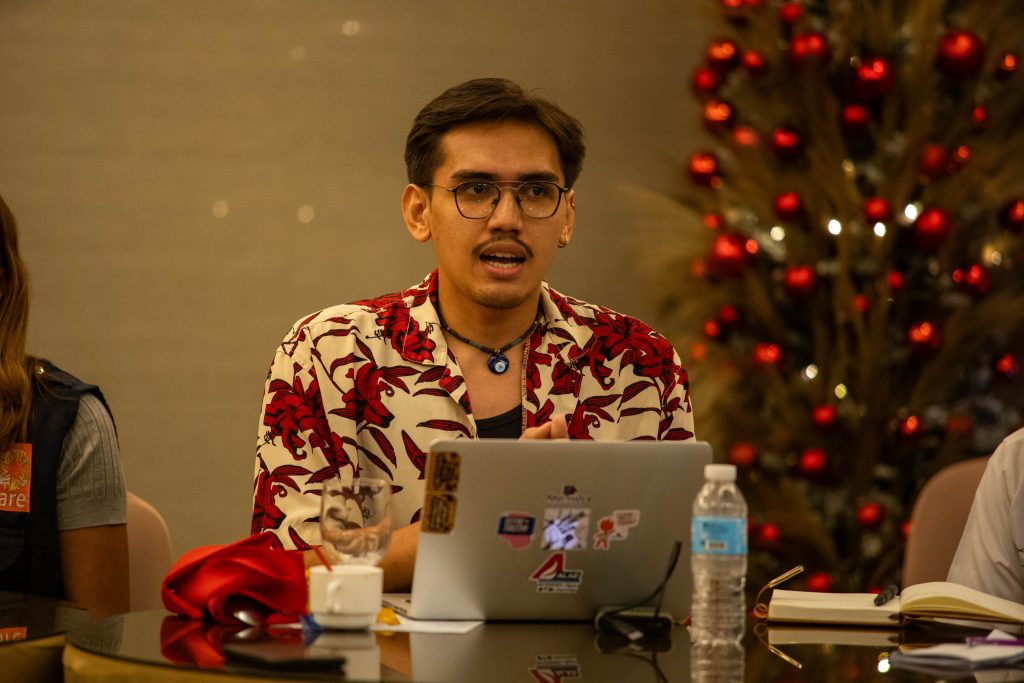
NCCP, through Mungcal, said the government must include abandoning the “whole-of-nation” approach in counterinsurgency programs and other policies that militarize rural areas in the country, including farming communities.
Instead of focusing on military actions, Mungcal urged the government to address the roots of climate vulnerability “which is chronic poverty and food insecurity”.
“Enact the Human Rights Defenders Bill and repeal the Anti-Terrorism Act and other related laws as they endanger human rights and environment defenders, as well as climate frontliners,” said Mungcal.
The dialogue among people’s organizations with the UN Special Rapporteur ended with hopes that the situation of Eastern Visayas people will be heard, and their aspirations acted upon.

